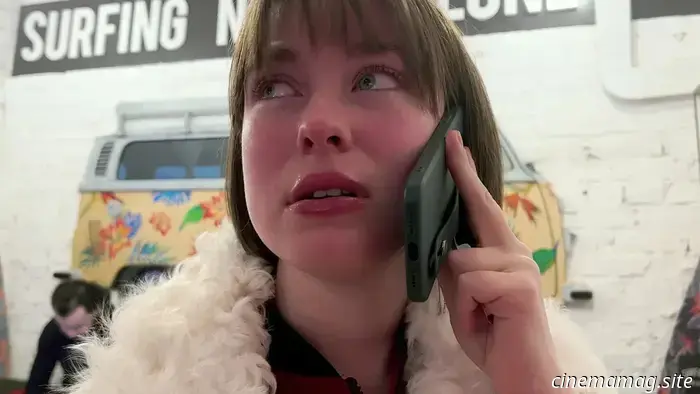
“Be Quiet, Be Quiet, Pay Attention”: Julia Loktev Discusses My Undesirable Friends: Part I — Final Breath in Moscow
Note: This interview was first published as part of our 2024 NYFF coverage. My Undesirable Friends: Part I – The Last Air in Moscow will be released in theaters on August 15.
For a particular type of film enthusiast (like myself), it’s been over a decade of pondering Julia Loktev's journey. The talented director known for Day Night Day Night and The Loneliest Planet has remained mostly out of the spotlight since the latter’s 2011 release, although occasional interviews hinted at her work on a new project; it eventually felt necessary to come to terms with her career leading a brief yet intriguing existence.
Thus, imagine the surprise and joy when My Undesirable Friends: Part I — Last Air in Moscow emerged, an expansive five-and-a-half-hour documentary detailing Russian journalists grappling with their nation’s repressive politics and the newly commenced war in Ukraine. With its premiere at this year's New York Film Festival, and as the film continues to screen in search of distribution, I spoke with Loktev about her efforts to create a new feature, the formal ideology behind this ambitious project, and the future direction of its second installment.
The Film Stage: It’s great to see you again. We had a brief chat during NYFF’s Opening Night.
Julia Loktev: Yes, we did!
I remember chatting with you at a Phantom Thread screening, wanting to resist asking if you were working on a new movie.
Oh, I love that story!
I didn’t want to assume you’d grown weary of the question "Where have you been? What have you been working on?" So just to clarify: were you tired of people asking, “Where have you been? What have you been working on?”
It’s amusing—your way of asking is polite. [Laughs] For the first few years after The Loneliest Planet, I felt truly lost. I wasn’t certain what was significant to pursue. At that time, when it was difficult to determine my path, that question became extremely painful. I would often try to steer clear of industry gatherings where someone would ask, [in a high-pitched voice], “So, what are you working on?”—and I'd think, "Please, just end it." Or when people inquire why writers or filmmakers haven’t been active for a while, it’s like stepping into a large room of discomfort.
Initially, I genuinely didn’t know what I wanted to do, and the projects I began didn’t resonate with me as worth continuing. Then, I co-wrote a fiction film that I adored, and it was receiving positive feedback. But COVID hit, and it was a film set in three different countries. Just as we were gaining traction, we couldn't shoot it anymore during the pandemic, and it never really regained momentum. And of course, this new film has taken three years so far.
Do you still hope to complete that project?
Oh, that’s a tough question. Perhaps in some reimagined form, yes. But I certainly want to pursue another fiction project, which will be influenced by the experience of making this film, a process that was exhilarating and freeing. Especially after dealing with writer's block for so long, this experience has been remarkable. It reminds me how much richer reality is than… well, at least my imagination, and probably for most people too. Observing scenes, you realize how much of writing can be overly straightforward. In real life, people shift from discussing serious subjects to inappropriate humor; the details are rich, like when you enter someone’s apartment and notice quirky things, like cat-themed furniture. If I had a production designer create that, I might say, "That's too much!"
I don’t know why I’m concentrating on material details—it’s part of every conversation. We visited a young journalist’s home; her fiancé is imprisoned on treason charges. She welcomed us wearing a black-and-white striped sweater emblazoned with “Paris” in bright letters, offering muffins while narrating how police searched her apartment and asked, “Where’s the safe? In the bathroom?” She quipped back, “It’s certainly not hidden among my Maxi Pads.” She resisted turning on the air conditioning for them while they rummaged through her belongings and arrested her fiancé. The depth, personality, and contradictions in that moment are exactly what I aspire to capture in fiction—if I can ever write with that depth and humor, I’ll be thrilled. This filmmaking journey has been the most extraordinary experience, navigating between fiction and documentary.
This film is clearly not produced like a conventional documentary. Many documentaries viewers are accustomed to are informative: featuring someone in an unfamiliar setting providing formal interviews, with their voice detached from their image, accompanied by B-roll and voiceovers. I endeavored to film it like a fiction piece—following characters and capturing them in their natural environments, whether in their kitchens or cars—focusing on their humanity. Even during editing, my co

Otros artículos
 Funko lanza las figuras Pop! de vinilo de IT: Bienvenido a Derry
Mientras nos preparamos para el regreso del aterrador Pennywise, el payaso danzante interpretado por Bill Skarsgård, Funko ha presentado una oleada de figuras Pop! Vinyl inspiradas en la próxima serie precuela de IT de HBO Max, IT: Welcome to Derry, que incluye un par de Pop! de Pennywise, así como a Bob Gray, al Hombre Esqueleto y a un Pennywise Pop! Town…
Funko lanza las figuras Pop! de vinilo de IT: Bienvenido a Derry
Mientras nos preparamos para el regreso del aterrador Pennywise, el payaso danzante interpretado por Bill Skarsgård, Funko ha presentado una oleada de figuras Pop! Vinyl inspiradas en la próxima serie precuela de IT de HBO Max, IT: Welcome to Derry, que incluye un par de Pop! de Pennywise, así como a Bob Gray, al Hombre Esqueleto y a un Pennywise Pop! Town…
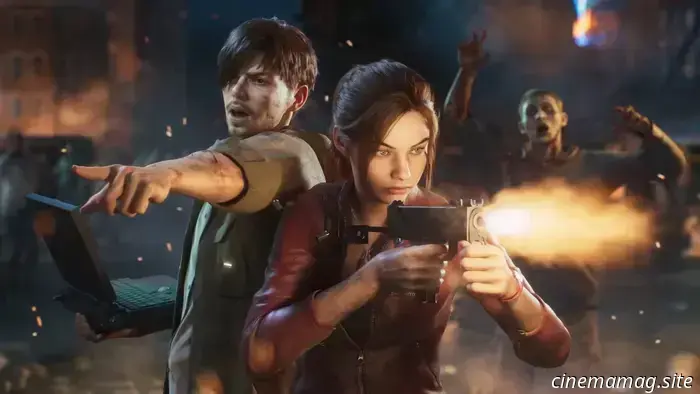 Resident Evil Survival Unit lanza un nuevo tráiler cinematográfico
Se ha lanzado un nuevo tráiler cinematográfico de Resident Evil Survival Unit, antes del lanzamiento del juego en Google Play y la App Store. Producido por Quebico, el estudio detrás de la animación 3DCG completa Resident Evil: Death Island, este nuevo tráiler captura la tensión que los jugadores experimentarán cuando el juego se lance a finales de este año. […]
Resident Evil Survival Unit lanza un nuevo tráiler cinematográfico
Se ha lanzado un nuevo tráiler cinematográfico de Resident Evil Survival Unit, antes del lanzamiento del juego en Google Play y la App Store. Producido por Quebico, el estudio detrás de la animación 3DCG completa Resident Evil: Death Island, este nuevo tráiler captura la tensión que los jugadores experimentarán cuando el juego se lance a finales de este año. […]
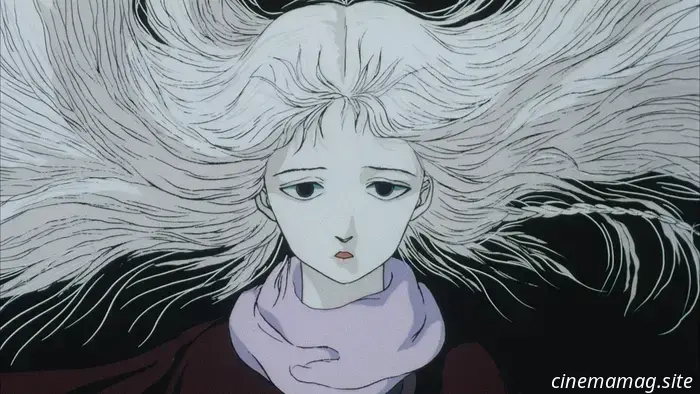 La sección Revivals del NYFF63 presenta Sholay: montaje del director restaurado, Satyajit Ray, Mamoru Oshii y más
La pieza final de la programación del 63.º Festival de Cine de Nueva York ya está fijada en su lugar. Ampliando el canon tradicional, Revivals celebra obras que han sido restauradas, preservadas o remasterizadas digitalmente. Con gemas redescubiertas y rarezas influyentes, esta selección destaca 12 películas que han sido aclamadas por su innovación artística y su importancia cultural o
La sección Revivals del NYFF63 presenta Sholay: montaje del director restaurado, Satyajit Ray, Mamoru Oshii y más
La pieza final de la programación del 63.º Festival de Cine de Nueva York ya está fijada en su lugar. Ampliando el canon tradicional, Revivals celebra obras que han sido restauradas, preservadas o remasterizadas digitalmente. Con gemas redescubiertas y rarezas influyentes, esta selección destaca 12 películas que han sido aclamadas por su innovación artística y su importancia cultural o
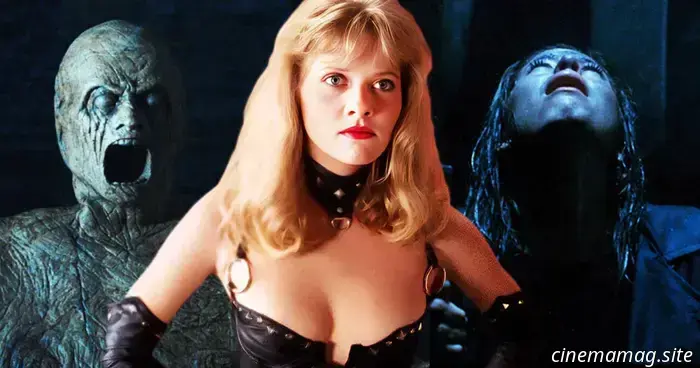 10 grandes películas de terror que evitan el bache del segundo largometraje del director
Casey Chong analiza a diez directores con excelentes segundas películas de terror… Todo cineasta espera poder triunfar desde el principio, y muchos logran impresionar con su ópera prima, obteniendo respuestas positivas tanto de la crítica como del público. Luego viene el siguiente desafío de continuar la racha ganadora sin caer víctima de la […]
10 grandes películas de terror que evitan el bache del segundo largometraje del director
Casey Chong analiza a diez directores con excelentes segundas películas de terror… Todo cineasta espera poder triunfar desde el principio, y muchos logran impresionar con su ópera prima, obteniendo respuestas positivas tanto de la crítica como del público. Luego viene el siguiente desafío de continuar la racha ganadora sin caer víctima de la […]
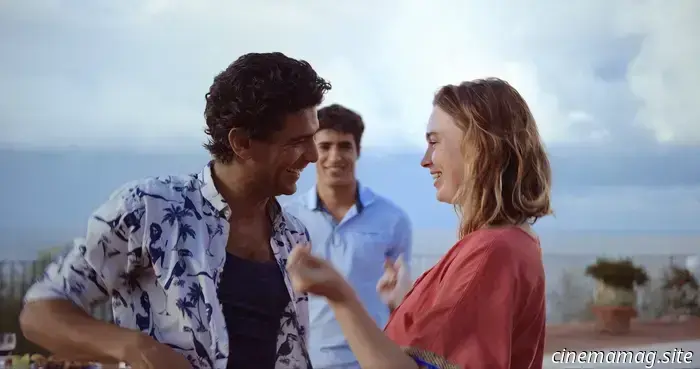 Reseña de Locarno: Mektoub, My Love: Canto Due concluye la seductora saga de Abdellatif Kechiche
¿De qué trata Mektoub, My Love? Ocho años desde el estreno de la primera película —y después de más de ocho horas de la obra magna de Abdellatif Kechiche— sigue siendo una pregunta que vale la pena hacerse. La última, Canto Due, completa la trilogía con todas las cosas que podríamos esperar de la serie: hay jóvenes hermosos, platos de cuscús, movimientos
Reseña de Locarno: Mektoub, My Love: Canto Due concluye la seductora saga de Abdellatif Kechiche
¿De qué trata Mektoub, My Love? Ocho años desde el estreno de la primera película —y después de más de ocho horas de la obra magna de Abdellatif Kechiche— sigue siendo una pregunta que vale la pena hacerse. La última, Canto Due, completa la trilogía con todas las cosas que podríamos esperar de la serie: hay jóvenes hermosos, platos de cuscús, movimientos
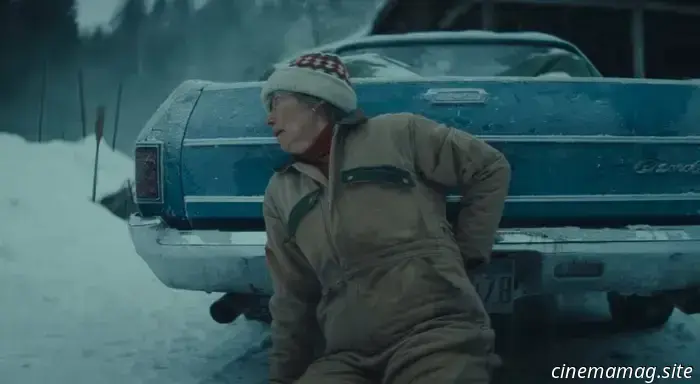 Emma Thompson lucha por su vida en el tráiler de Dead of Winter.
Vertical ha lanzado un tráiler del próximo thriller Dead of Winter del director Brian Kirk (21 Bridges). Emma Thompson protagoniza a una mujer que viaja sola por el norte de Minnesota y se ve obligada a detenerse para pedir ayuda cuando se pierde en una ventisca, pero al acercarse a una cabaña remota es testigo del secuestro de un adolescente […]
Emma Thompson lucha por su vida en el tráiler de Dead of Winter.
Vertical ha lanzado un tráiler del próximo thriller Dead of Winter del director Brian Kirk (21 Bridges). Emma Thompson protagoniza a una mujer que viaja sola por el norte de Minnesota y se ve obligada a detenerse para pedir ayuda cuando se pierde en una ventisca, pero al acercarse a una cabaña remota es testigo del secuestro de un adolescente […]
“Be Quiet, Be Quiet, Pay Attention”: Julia Loktev Discusses My Undesirable Friends: Part I — Final Breath in Moscow
Note: This interview was initially released as part of our coverage for the 2024 NYFF. My Undesirable Friends: Part I – The Last Air in Moscow is set to be released in theaters on August 15. For a particular type of film enthusiast (like me), over the past ten years, I've been curious about Julia Loktev. She is the talented director known for Day Night Day.
